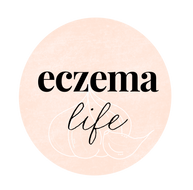Calcium uses and dosages

As mentioned in tip 2, people with eczema tend to have high levels of arachidonic acid in the body and this can be used to make leukotrienes which causes eczema. Refer to the Eczema Diet book diagram below.
So how can calcium assist? Calcium is highly alkalising and it can reduce acid in the body. A calcium deficiency can also produce eczema.
Calcium deficiency signs include the following:
- Eczema
- Anxiety
- Hyperactivity
- Depression
- Heart palpitations
- Food sensitivities
Calcium is one of the most underrated skin supplements on the planet, but calcium is often added to skin care products due to its anti-ageing effects. When taking calcium in supplement form, it boosts the acidity of the skin’s acid mantle, which can increase the skin’s ability to protect itself against dust mites and infections. Calcium also helps to maintain the right amount of moisturizing lipids in the epidermis layer of the skin by triggering lipid production.
Calcium: dosages and food sources
|
Calcium (known as) |
Supplement dosages (milligrams per day)** |
Eczema-friendly food sources |
|
Calcium carbonate Calcium citrate* Calcium phosphate
|
Infants (AI) 210–270 mg from breastmilk or hypoallergenic (dairy-free) infant formula
Children + teens 1–4 years: 200–500 mg 5–12 years: 400–600 mg 14–18 years: 600 mg
Adults 600 mg |
100 g (3½ oz) tofu: 350 mg 1 cup calcium-fortified soy milk or rice milk: 300 mg 100 g (3½ oz) sardines: 300 mg^ 100 g (3½ oz) salmon: 200–300 mg^ ½ cup green soybeans: 130 mg 1 bowl oatmeal/porridge: 99–110 mg ½ cup white beans: 96 mg 160 g (5 1⁄3 oz) fish fillet: 85 mg 1 cup sweet potato: 76 mg^ 80 g (3 oz) rainbow trout: 73 mg^ 100 g (3½ oz) flathead/flounder: 23–55 mg 1 cup green beans: 55 mg 100 g (3½ oz) cabbage: 40 mg ½ cup celery: 20 mg 1 cup cooked spelt: 19 mg ½ cup leeks: 15 mg |
What type of calcium is best for itchy eczema?
As eczema is strongly associated with salicylate sensitivity, refined (pure) calcium carbonate is the best form to take because it is the most alkalizing of all types of calcium. Calcium carbonate is a salicylate sensitivity remedy and is also salicylate-free (but not if it is plant sourced from seaweed). Pure calcium carbonate helps to quickly alkalize the blood and urine which is important because research shows the body eliminates excess salicylates when the urine pH reaches 7.5 — and supplementing with calcium carbonate helps you reach this pH, which is how it temporarily reduces salicylate intolerance. You can test your pH using a pH test kit, like this one here.
